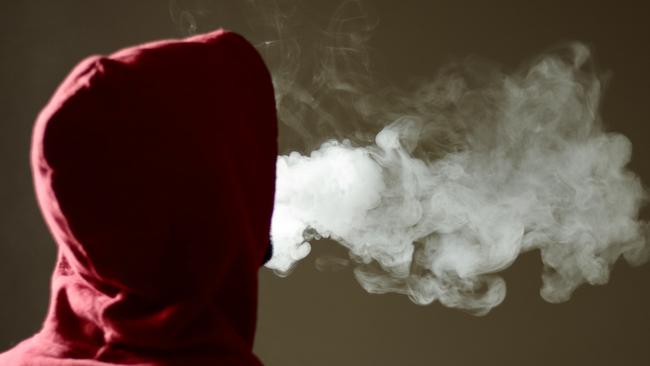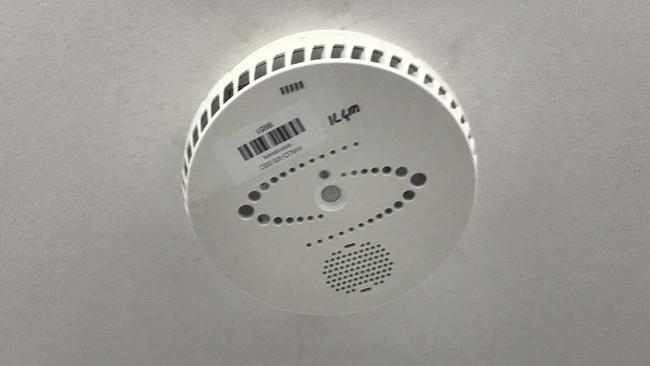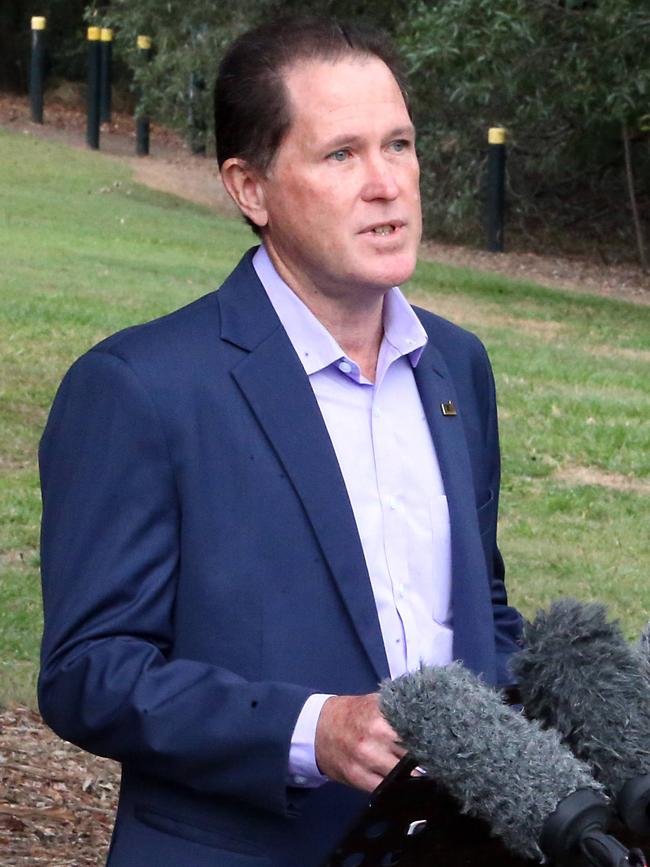Schools use artificial intelligence to bust students vaping
Artificial intelligence is being deployed to dob in students for vaping or bullying in school toilets, as children end up in hospital with nicotine and heavy metal poisoning.

Artificial intelligence is being deployed to dob in students for vaping or bullying in school toilets, as children end up in hospital with nicotine and heavy metal poisoning.
The Islamic College of Brisbane has spent $80,000 installing 40 HALO smart sensors, which use machine learning to detect vaping as well as noise that might indicate fighting or bullying.
College chief executive Ali Kadri – who has embraced AI in teaching – said the surveillance devices, which resemble smoke alarms, used machine learning to alert teachers when vaping was detected.
“The devices basically train themselves by interacting in real time with the environments where they’ve been installed,’’ he said. “It gets to know specific noise levels at certain times of the day and has the capability to keep watch for bullying or fighting by detecting higher than normal thresholds.
“The devices also accurately learn the baseline patterns of water vapour in any given bathroom, so it looks for any anomaly and can immediately raise the alarm.’’

Mr Kadri said the AI vape detectors did not use cameras, record audio or capture personal information.
He said the college did not have a major problem with vaping and bullying, but wanted to send “a very clear message that zero tolerance will be applied’’.
The private college’s expenditure on AI surveillance of students comes as schools across the nation struggle to stamp out vapes, which are often disguised as highlighter pens or USBs.
The federal government has not banned the importation of vapes six months after it announced it would. Students as young as six have been caught using the devices, which often contain nicotine, heavy metals and cancer-causing formaldehyde.
A Queensland parliamentary inquiry into vaping in schools has revealed that hundreds of children have been poisoned this year, with dozens sent to hospital. The Queensland Catholic Education Commission revealed that students in Year 3 had been caught vaping.
One Catholic school discovered that students playing high-level sport were vaping because they wrongly thought vapes were less harmful than cigarettes.

High school principals have caught students selling vapes in the playground. “There is a growing ‘vape currency’,’’ Queensland Secondary Principals Association president Mark Breckenridge told the inquiry.
“Schools report students selling their belongings, theft or completing tasks for vaping funds, (for example) homework or assignment completion.
“Occasionally these ‘deals’ for funds may sour, with schools reporting acts of intimidation and/or verbal or physical aggression.’’
The principals said students were hiding vapes inside their clothing, knowing that teachers could not carry out body searches.
And students who did not want to vape were refusing to use the toilets, for fear of breathing in the vapour.
“Students unwilling or afraid to use toilets during the day is an unhealthy and unwanted outcome of vaping in schools,’’ Mr Breckenridge said.
“Students using the amenities for legitimate reasons report passive vaping as they walk through a vape-filled facility.
“There is a fear of retribution … if it is perceived they too are vaping.’’
The Queensland Teachers’ Union said traditional smoke alarms were not sensitive enough to detect vapour reliably, especially when students blew the vapour into toilets.
The Queensland Parents & Citizens Association said some parents and carers were buying vapes for their children to sell at school.
The Queensland parliamentary health and environment committee recommended this week that students caught vaping be given help to quit, and forced to complete an online course on the dangers of vaping, instead of being punished through school suspensions.
Federal opposition education spokeswoman Sarah Henderson said federal and state governments “are doing way too little to protect young Australians from the serious harm caused by vaping’’.
Federal Health Minister Mark Butler has said he was “working furiously’’ with state and federal governments to ensure that bans are uniform, to avoid any “legal loopholes’’.








To join the conversation, please log in. Don't have an account? Register
Join the conversation, you are commenting as Logout